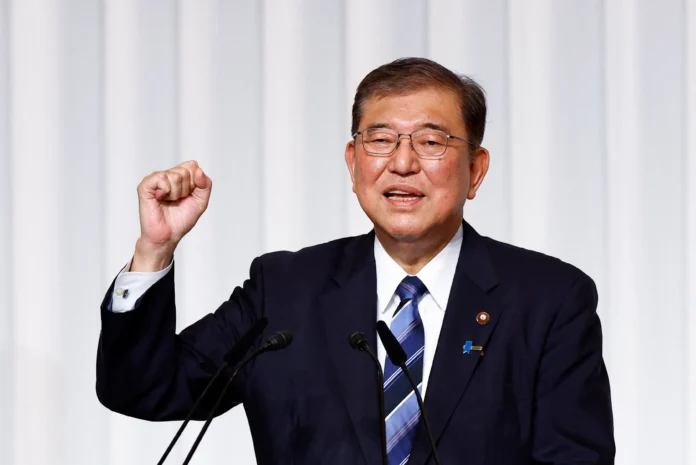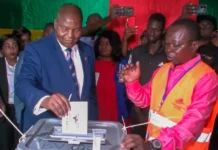Prime Minister Shigeru Ishiba has vowed to remain in office despite a major electoral defeat that saw his ruling coalition lose its majority in Japan’s upper house of parliament. The result dealt a serious blow to the Liberal Democratic Party (LDP) and its junior partner Komeito, which secured only 47 of the 50 seats needed to retain control in the 248-seat chamber.
The tightly contested election, held Sunday, came amid growing public frustration over inflation, rising rice prices, and ongoing tensions with the United States over trade tariffs. The defeat follows the coalition’s earlier loss of its lower house majority last year, further weakening its legislative power.
Speaking after polls closed, Ishiba said he “solemnly” accepted the “harsh result” but maintained that stepping down was not an option. “My priority is to steer Japan through these challenging trade negotiations and restore stability,” he said.
The main opposition, the Constitutional Democratic Party, won 22 seats, while the far-right Sanseito party emerged as a surprise force, claiming 14 seats, a significant gain from the single seat it held previously. Sanseito, led by Sohei Kamiya, surged on a platform of nationalism, anti-immigration sentiment, and pandemic-related conspiracy theories, attracting conservative voters who once backed the LDP.
“The LDP is losing its conservative base,” said Jeffrey Hall, a Japanese Studies lecturer at Kanda University. “Ishiba isn’t seen as nationalist enough compared to former Prime Minister Shinzo Abe, and that’s opened the door for more radical voices.”
The LDP has governed almost uninterrupted since 1955 but has cycled through leaders amid scandals and internal discord. Ishiba now faces mounting pressure from within, with potential challengers including Sanae Takaichi, Takayuki Kobayashi, and Shinjiro Koizumi waiting in the wings.
Historically, LDP leaders who lose upper house control resign within months. While Ishiba remains defiant, analysts say the coming weeks will be crucial. A leadership shakeup could inject volatility into Japan’s already tense political climate, especially as the country navigates pivotal trade talks with Washington.
Although markets were closed Monday for a public holiday, the yen strengthened modestly, suggesting investors had anticipated the outcome.
As political tension simmers, Ishiba has launched a controversial task force to address crimes and “nuisance behavior” linked to foreign nationals, a move widely seen as an attempt to shore up right-wing support.
With inflation rising and nationalism resurging, Japan’s political landscape is shifting. Whether Ishiba can weather the storm or becomes the next casualty in a long line of short-lived premiers remains to be seen.
Written By Rodney Mbua



















